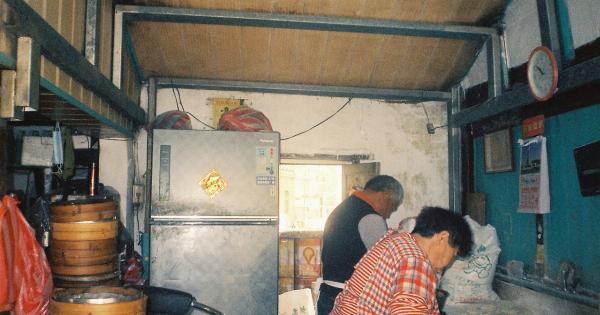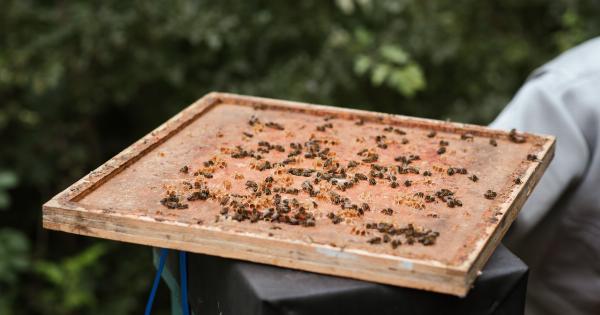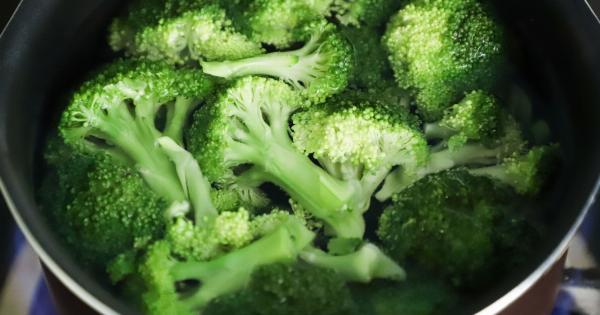Eating out is a common occurrence for many people. Whether it’s grabbing a quick bite at a fast-food restaurant or enjoying a leisurely meal at a fancy restaurant, dining out has become a regular part of our daily lives.
While dining out offers convenience and a break from cooking and washing dishes at home, there is a hidden danger that most people overlook – dirty dishwashers.
The Role of Dishwashers in Restaurants
Restaurants rely heavily on dishwashers to ensure that the dishes, cutlery, and glasses used by customers are clean and sanitary.
Dishwashers are responsible for removing food particles, grease, and bacteria from eating utensils and dishes to prevent cross-contamination and the spread of diseases.
The Dangers of Dirty Dishwashers
Dirty dishwashers pose several risks to both the restaurant staff and the customers. Here are some of the dangers associated with poorly maintained or dirty dishwashers:.
1. Bacterial Contamination
A dirty dishwasher can become a breeding ground for harmful bacteria. Food particles and organic matter that remain in the dishwasher provide a suitable environment for bacteria to multiply rapidly.
If the dishwasher does not reach the proper temperature or lacks appropriate cleaning agents, these bacteria can survive and contaminate the dishes and utensils that are washed in the machine.
2. Foodborne Illnesses
When dirty dishes, glasses, or cutlery are used to serve food, they can introduce harmful bacteria or contaminants into the meals. This can result in foodborne illnesses, such as diarrhea, vomiting, stomach cramps, or even more serious complications.
Restaurants that do not prioritize dishwasher maintenance and cleanliness put their customers at risk of falling ill.
3. Mold and Fungi Growth
A neglected dishwasher can also become a breeding ground for mold and fungi. The warm and moist environment created by food debris and insufficient cleaning allows these organisms to thrive.
Mold can release spores into the air, leading to respiratory problems for both the staff working in the restaurant and the customers dining there.
4. Unpleasant Odors
A dirty dishwasher can emit foul odors that can linger in the dining area and affect the overall dining experience of customers.
The combination of rotting food particles, bacteria, and mold can create an unpleasant smell that can be difficult to eliminate even with air fresheners or regular cleaning.
5. Cross-Contamination
Cross-contamination is a significant concern in the food industry. When dishes, glasses, or utensils are not properly washed, they can carry traces of allergens, gluten, or other potentially harmful substances from previous customers’ meals.
This can be dangerous for individuals with allergies or dietary restrictions, as even a small amount of cross-contamination can trigger severe allergic reactions.
Preventing Dishwasher-Related Hazards
Fortunately, there are several measures that restaurants can take to mitigate the risks associated with dirty dishwashers:.
1. Regular Maintenance
Restaurants should establish a strict maintenance routine for their dishwashers. This includes daily cleaning, descaling, and checking for clogged filters.
Regular maintenance can help prevent the accumulation of food debris, grease, or mineral deposits that can hinder the dishwasher’s performance and hygiene.
2. Proper Training for Staff
All restaurant staff involved in dishwashing should receive thorough training on how to operate dishwashers correctly.
This includes understanding the different cycles, using appropriate cleaning agents, and knowing how to identify signs of dysfunction or malfunction. Proper training ensures that dishwashers are used to their full potential and reduces the risk of dirty dishes being served to customers.
3. Adequate Water Temperature and Cleaning Agents
Proper water temperature and the use of effective cleaning agents are essential for dishwasher sanitation.
Restaurants should regularly check the dishwasher’s temperature gauge to ensure it reaches the recommended heat levels for proper cleaning and sanitization. Additionally, using high-quality cleaning agents that are suitable for commercial dishwashers can help eliminate bacteria and remove tough stains.
4. Regular Inspections
Restaurant owners or managers should conduct regular inspections of the dishwasher to ensure it is in optimal working condition.
This includes inspecting the dishwasher’s interior, filters, spray arms, and drain to make sure no obstructions or residues are present. Any signs of malfunction or poor cleaning performance should be addressed immediately to avoid potential health hazards.
Conclusion
When dining out frequently, it is crucial to be aware of the potential dangers posed by dirty dishwashers in restaurants.
Bacterial contamination, foodborne illnesses, mold growth, unpleasant odors, and cross-contamination are all risks that can arise from poorly maintained or dirty dishwashers. Restaurant owners, staff, and customers must prioritize regular maintenance, proper training, adequate temperature and cleaning agents, and thorough inspections to ensure a safe and enjoyable dining experience for everyone.





























